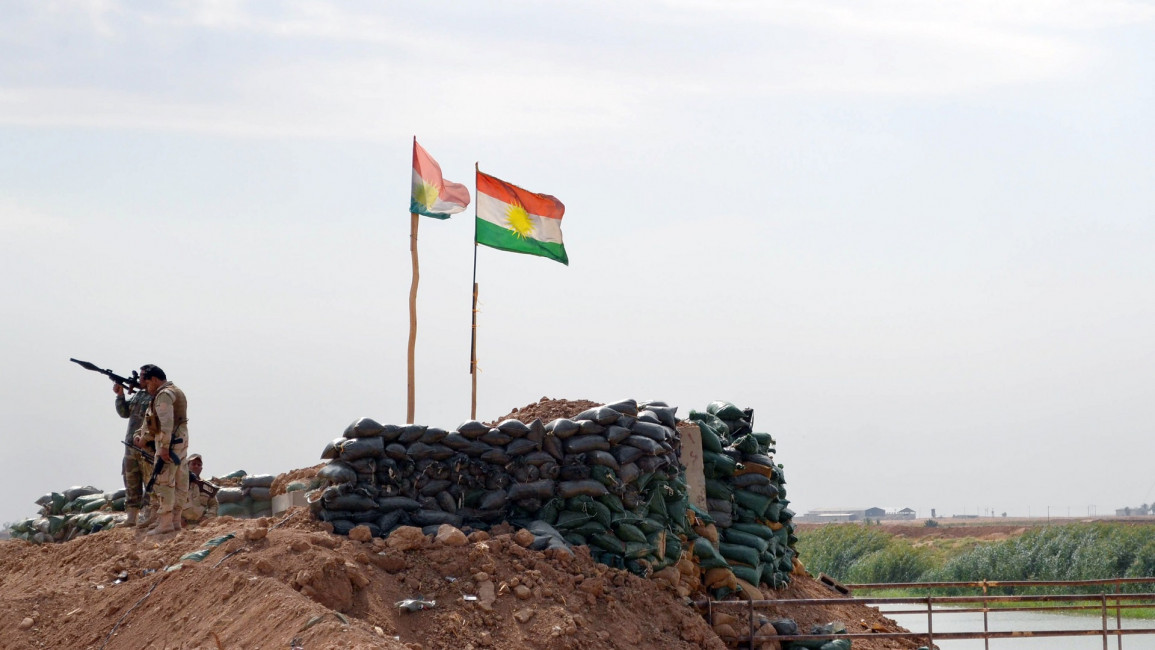Peshmerga fight for Kurds, not neighbours, in forthcoming counter-attack
Kurdish Peshmerga forces who are battling the Islamic State group (IS, formerly known as ISIS) in northern Iraq could soon be ready to launch an offensive into areas controlled by the jihadi organisation, according to recent reports. Backed by Arab tribes, the idea is to force IS fighters out of northern Iraq, following the Kurdish militia group's successes on the battlefield and its bolstering with arms supplies from several countries, including the US.
Masoud Barzani, president of the Iraqi Kurdistan region, insisted on Friday that Peshmerga fighters would only fight for Kurdish areas of the country, but urged non-Kurdish Iraqis to fight back similarly in their own areas.
"Iraqis should not wait for the Peshmerga to take their place in defeating IS militants," said Barzani, commander of the Peshmerga units. "We will liberate our areas. [Iraqis] should not be observers - instead, they should reorganise themselves and liberate their own areas."
| Iraqis should not wait for the Peshmerga to take their place in defeating IS militants. - Masoud Barzani, Kurdish president |
IS launched a lightning attack across parts of Iraq and Syria earlier this year, capturing Kurdish and Arabic-speaking areas in both countries. The Peshmerga, backed by coalition aircraft, have been fighting a bitter war with IS in places such as Kobane on the Turkish-Syrian border, and now seem to be ready to recapture lost ground after bringing a seemingly invincible jihadi offensive to a halt.
US support
During a meeting between Barzani and Deputy US National Security Adviser Tony Blinken in the city of Duhok on the Iraqi-Turkish border, Barzani announced that his Peshmerga forces had regained control over territory previously under IS command. His fighters would go on to liberate all Kurdish areas that remain under the control of the jihadi organisation, he said.
His statements largely reflect the mood on the streets in Iraqi Kurdistan, where the idea of engaging Peshmerga forces in military operations outside Kurdish territories is deeply unpopular. Kurdish sensitivity towards their Arab neighbours has increased during the past four years, when certain tribes in the Diyala, Ninawa, Kirkuk and Salah ad Din provinces - all areas under the control of Sunni Arab tribes - supported IS either voluntarily or after pressure.
Isolationist
"I don't want the Peshmerga to be killed in order to liberate Arab areas and any land that is not Kurdish," a university student named Baran told al-Araby al-Jadeed. "They have their men, let them bear arms and liberate their areas. We have opened our doors, the Kurdish Regional Government has provided refuge to hundreds of thousands of Iraqi Arabs and there are thousands of Christians and others. We provide shelter and jobs for many of their children, they share our areas and that is enough."
Milad Sami, an Iraqi citizen, added: "Do the Peshmerga have any idea about the characteristics of these Arab areas? I don't think they do. The people know their areas best, and if men were to receive sufficient training, weapons and supplies, then they would be able to liberate their own regions.
| I don't think there are enough Peshmerga forces to be sent outside of the Kurdish territories. - Milad Sami, Iraqi |
"I have seen 20 or 25 Peshmerga fighters fight the IS in some parts that were close to the front lines… so, I don't think there are enough Peshmerga forces to be sent outside of the Kurdish territories who can contribute to the liberation of other areas. The priority is to protect the Kurdistan region."
Barzani said that areas that had fallen into the hands of IS, including Mosul, Iraq's second city, are unlikely to be liberated from the jihadi group unless the international coalition against IS or Iraqi government launch a sustained military assault there. Many in Kurdish regions believe, due to little prospect of an international ground offensive, that Arab Iraqis are best attempting to liberate themselves, rather than wait for outside help.
| The Peshmerga forces have dispelled the [belief] that the IS was a force that could not be beaten. - Masoud Barzani, Kurdish president |
"The Peshmerga forces have dispelled the [belief] that the IS was a force that could not be beaten, and therefore, Iraqis need to stop fearing the militants and need to start attacking the armed fighters of the IS," Barzani said.
The Iraqi army must be reformed in such a way that all elements in the ethnically and religiously divided country can play a role, said Barzani. But Kurdish opposition to fighting in non-Kurd areas might be reconsidered if the US requests the Kurdish force intervenes, with the relationship between the two entities being an all time high.
"Washington and Erbil stand before a long journey of co-operation with allied nations in order to defeat the armed militants," said Blinken, according to a statement from Barzani's office. "We hope that the [restructuring] of the Iraqi army takes place so it is able to reach a level of combat and offensive ability that is comparable with those of the Peshmerga."
This article is an edited translation from our Arabic edition.



